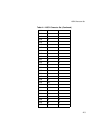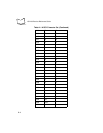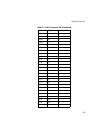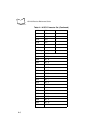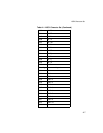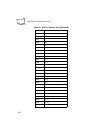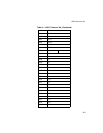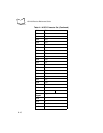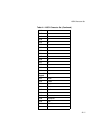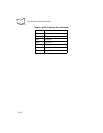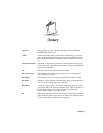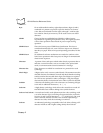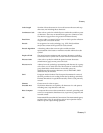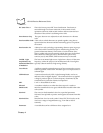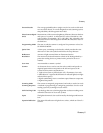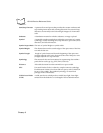
Glossary-5
Glossary
Percent Decode The average probability that a single scan of a bar code would result
in a successful decode. In a well-designed bar code scanning system,
that probability should approach near 100%.
Print Contrast Signal
(PCS)
Measurement of the contrast (brightness difference) between the bars
and spaces of a symbol. A minimum PCS value is needed for a bar
code symbol to be scannable. PCS = (RL - RD) / RL, where RL is the
reflectance factor of the background and RD the reflectance factor of
the dark bars.
Programming Mode The state in which a scanner is configured for parameter values. See
SCANNING MODE.
Quiet Zone A clear space, containing no dark marks, which precedes the start
character of a bar code symbol and follows the stop character.
Reflectance Amount of light returned from an illuminated surface.
Resolution The narrowest element dimension which can be distinguished by a
particular reading device or printed with a particular device or
method.
Scan Area Area intended to contain a symbol.
Scanner An electronic device used to scan bar code symbols and produce a
digitized pattern that corresponds to the bars and spaces of the
symbol. Its three main components are:
1. Light source (laser or photoelectric cell) - illuminates a bar code.
2. Photodetector - registers the difference in reflected light (more light
reflected from spaces).
3. Signal conditioning circuit - transforms optical detector output into
a digitized bar pattern.
Scanning Mode The scanner is energized, programmed, and ready to read a bar code.
Scanning Sequence A method of programming or configuring parameters for a bar code
reading system by scanning bar code menus.
Self-Checking Code A symbology that uses a checking algorithm to detect encoding errors
within the characters of a bar code symbol.
Space The lighter element of a bar code formed by the background between
bars.
Specular Reflection The mirror-like reflection of light from a surface, which can “blind” a
scanner.



